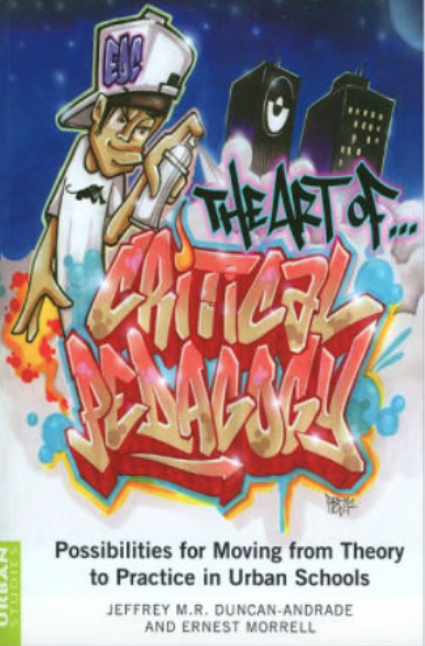In our previous blog, we explored Bay Area educator Dr. Jeffrey Duncan-Andrade’s claim that the urban education system in America is not failing. According to Duncan-Andrade, urban education is designed to produce and reproduce failure—from its inception, urban education is supposed to fail students and society. Therefore, we must admit that urban education is actually successful; it is successful in fulfilling its design to consistently and blatantly fail.
In this blog, we will further explore two reasons provided by Duncan-Andrade as to why this continual failure in urban education is tolerated. There is no shortage of school reform rhetoric and protests, but on a practical stand-point, we must admit, failure is the expectation on a day-to-day basis for the urban education system. Duncan-Andrade claims that there are two main reasons we must explore “if we are to move forward a set of structures and critical educational practices in urban schools.” In order to have an impactful conversation about urban school reform, we must talk about both the politics and economics of failure.
When we consider the politics of education, we are eventually faced with its deeply rooted sense of Social Darwinism. We take for granted that those students who succeed within the education system will succeed in life, and we cite research without questioning the correlation between academic success and a successful life. What’s worse is that “perpetual urban school failure is tolerated because deep down our nation subscribes to the belief that someone has to fail in school.” This is the reason for “the existence of a largely unchallenged pedagogical system of grading and testing that by its very design guarantees failure for some.” We expect students to fail just as much as we expect students to succeed, and this is the reason for which many parents and students across the nation are more focused on the grades they receive rather than on the learning they are engaging with. This is expected from a society that rewards merits rather than personal development.
Duncan-Andrade argues that the economics of education should also be considered. “To a large degree, the public discourse recognizes but leaves unchallenged the fact that wealthier communities have better educational opportunities.” This results in a skewed success rate benefiting the wealthy, but this reality is hidden behind the illusion that all students, wealthy and poor, have equal opportunities for academic success. Duncan-Andrade compares this illusion to a rigged game of Monopoly, where “in the game of education, groups with high levels of social, political, and economic capital move around the same game board as the rest of the population, supposedly competing under the same set of rules, but they afford themselves a supplemental bankroll that guarantees an unfair competition, one that for centuries has produced the same unequal outcomes in schools and in the larger society.” In the end, wealthier students experience academic success, not because they have superior intellect or culture, but because they have the money to experience success.
Although Duncan-Andrade does not offer direct solutions for tackling these political and economic stressors on urban education, he does suggest that urban education will experience true reform when educators begin to implement “culturally relevant pedagogy.” Students will begin to experience a reformed educational impact when “rather than presenting [their] community as a place to rise above, schools must equip themselves to draw from the knowledge that students bring with them to school—knowledge that is often not in their textbooks but is acquired from the streets, family cultural traditions, youth culture, and the media.” By incorporating culturally relevant pedagogy, the political and economic tables are turned, and those students who have historically experienced systemic failure in traditional academic settings are placed as the holders of knowledge; thus, indirectly defeating the systemic political and economic roadblocks students of color experience in the classroom.
The question now becomes: HOW can we achieve this? Come back for the next blog in this series to find out!

